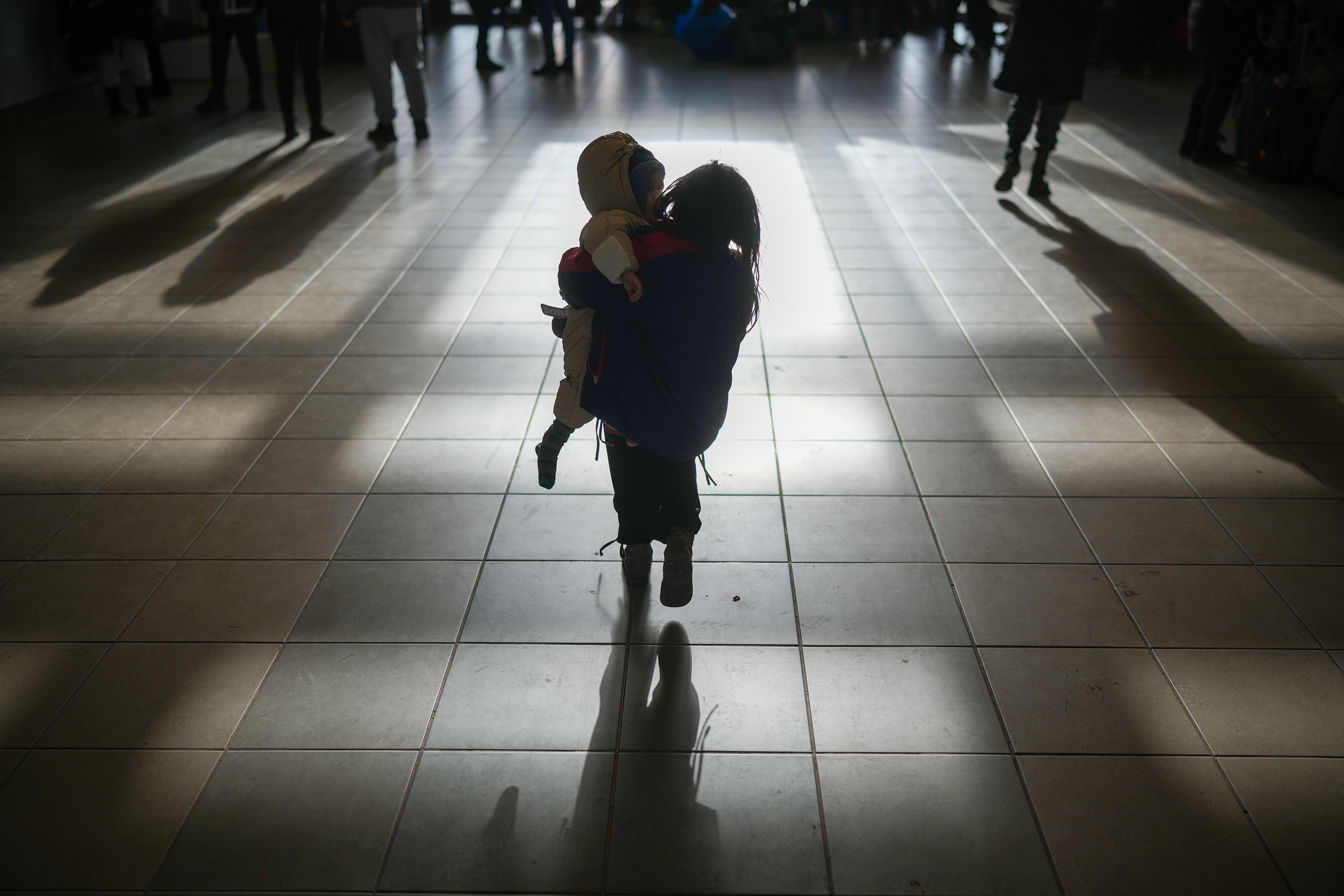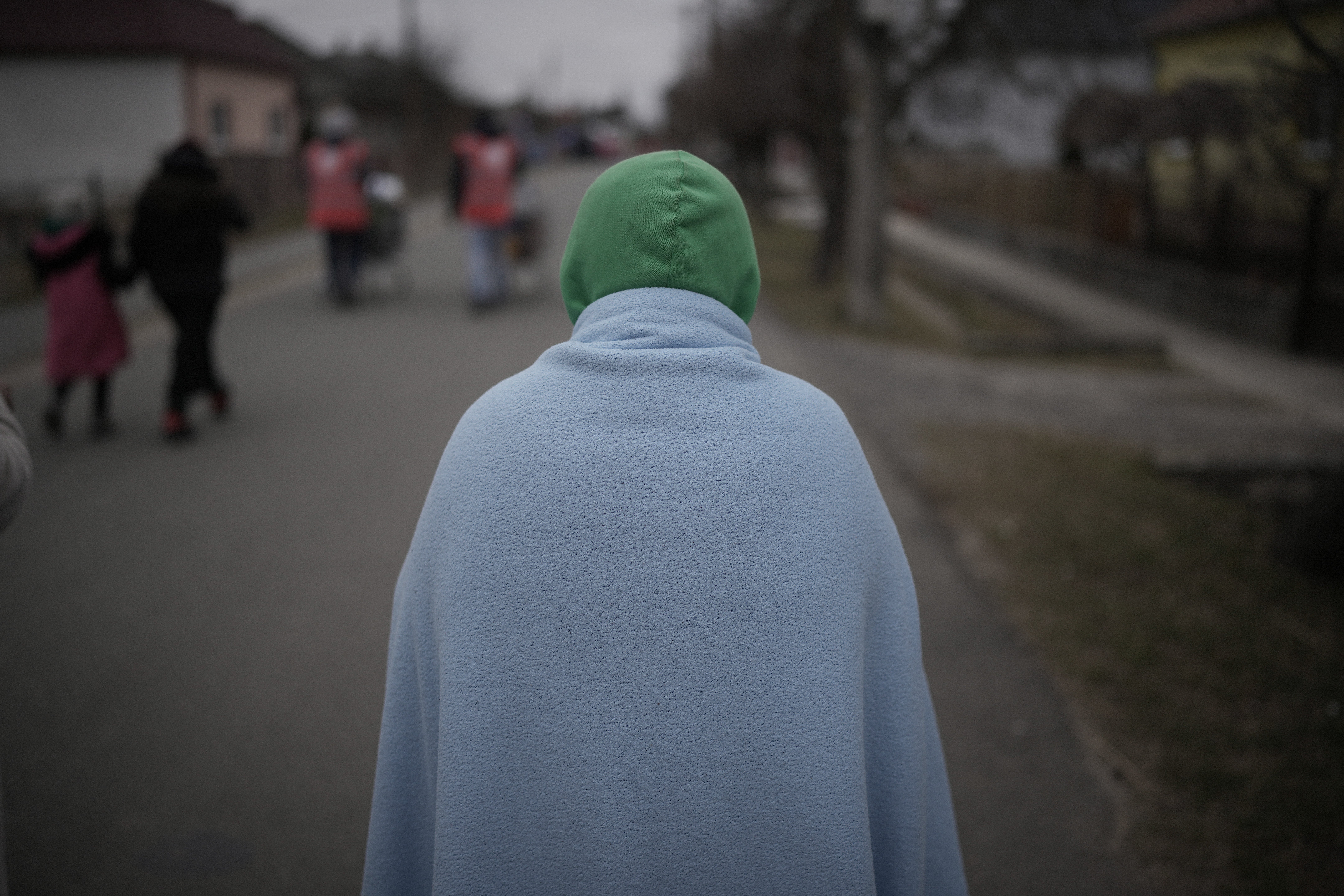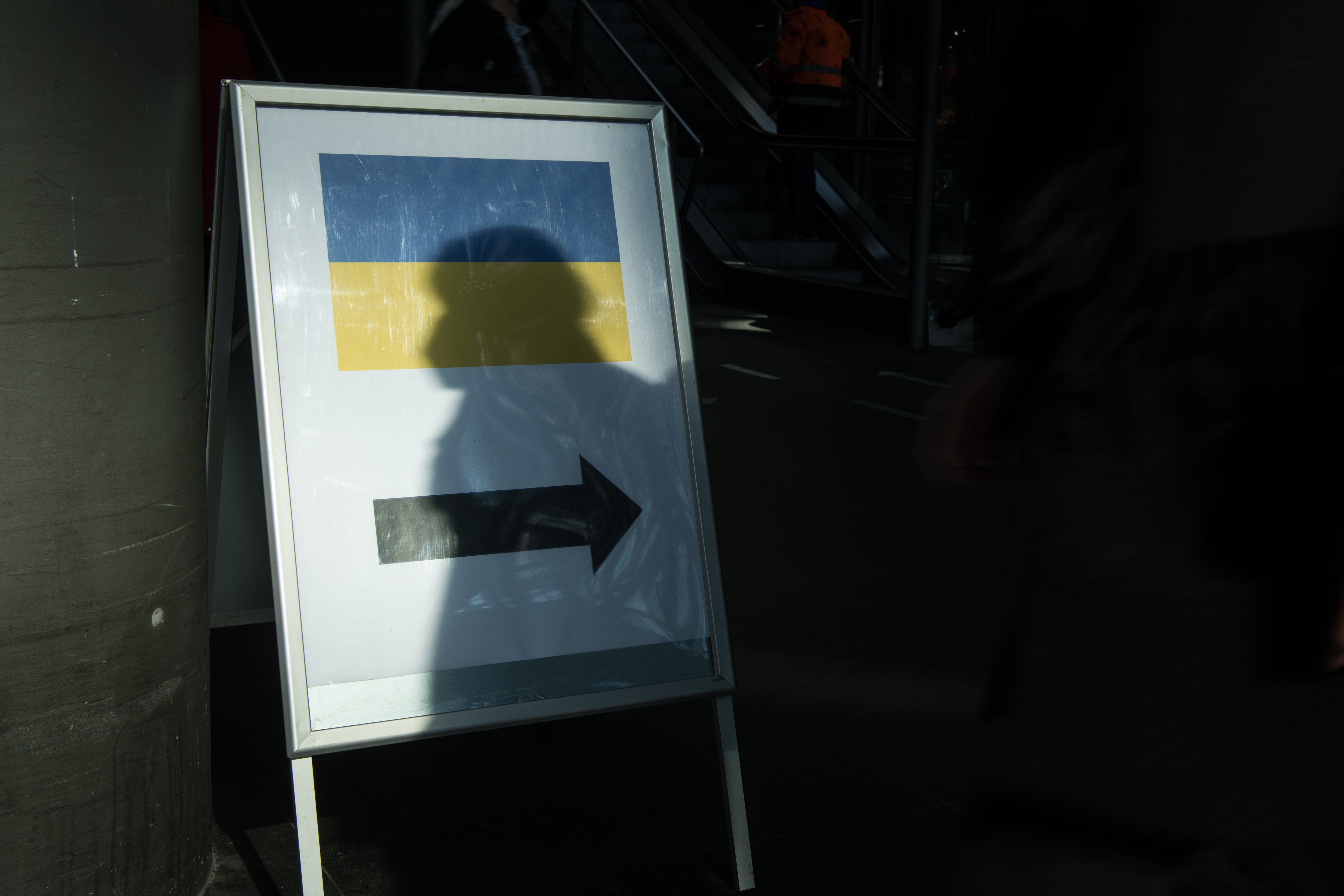Child trafficking threat concerns Italian charities amid Ukrainian refugee influx
Aid agencies in Italy say unaccompanied children are particularly at risk of abuse and human trafficking

Italian aid agencies are warning people against taking in Ukrainian minors through unofficial channels due to concerns over exploitation and human trafficking, following the arrival in Italy of tens of thousands of children fleeing Russia’s invasion.
Roughly 72,000 Ukrainian refugees have reached Italy since Russia’s ground and air offensive on its neighbour started over a month ago, catapulting Ukraine into a state of war and forcing nearly four million people to leave the country.
More than 31,000 of these recent arrivals into Italy are children, many of them armed with little more than a backpack and a favourite toy. Approximately 300 of them are unaccompanied, according to the Italian interior ministry.
Ukrainian children travelling solo are particularly vulnerable along their journeys, and even after crossing the border into the relative safety of Italy, they remain at risk of exploitation, violence and trafficking, NGOs have warned.
“We need the highest level of alert,” said Raffaela Milano, head of Save the Children in Italy. “During conflict there’s the risk of being separated from the family and losing contact, and there are people who exploit [the situation].”
The influx of refugees has given rise to private individuals and unaccredited organisations purportedly seeking to help the arrivals. One such group was recently reported to local authorities, Ms Milano told The Independent.
So far there are no known cases in Italy of human trafficking among Ukrainian arrivals, but charities are remaining vigilant.
“Given what happens in other conflicts, we need to keep our guard up,” said Ms Milano. “We invite people not to curb their generosity and hospitality but to direct them towards formal, institutional channels.”

Such concerns are not unique to Italy. In the UK, Ukrainian refugees have started to “advertise” themselves on social media in a bid to find hosts while experts have warned that the British government’s Homes for Ukraine scheme risks operating as “Tinder for sex traffickers”.
Aid agencies in Italy are moving as quickly as they can to avoid children falling through the cracks by registering them the moment they cross the border, before offering them psychological support and cultural mediators.
But operating amid what the UN has called "the fastest growing refugee crisis in Europe since World War II” is no easy feat for NGOs in Italy or in nations neighbouring Ukraine.
Cases of children going missing along Ukraine’s borders have already been reported by aid groups and volunteers in countries including Poland and Slovakia. Charities say they have seen men who they suspect to be predators, pimps or sex traffickers dressed in military fatigues or high-vis jackets and hanging around refugee shelters or transit points.

Earlier this month, UN secretary-general António Guterres sounded the alarm about the threat of trafficking following Russia’s invasion of Ukraine.
“For predators and human traffickers, the war in Ukraine is not a tragedy,” he said on Twitter. “It’s an opportunity – and women & children are the targets.”
In Italy, Unicef spokesman Andrea Iacomini said there had been a “proliferation of associations asking people if they want to take a Ukrainian child”.
Most of the minors who have arrived in Italy without their respective parents have been entrusted to extended family members or family friends, according to Mr Iacomini. But reuniting them with their parents is key in avoiding further psychological stress and separation anxiety, he added.
Parents have resorted to desperate measures to protect their children including sending them abroad with neighbours or friends while they remain in Ukraine to help with the war effort.
“This crisis is a crisis of separated minors, children who must be brought to their parents when the time comes – but right now they must be protected,” Mr Iacomini told The Independent. “Many of these children bear the so-called scars of war, they’re in need of protection and should be protected immediately.”

Last week in the Italian senate, interior minister Luciana Lamorgese called for an increase in border controls “to avoid grey areas that favour criminal interests and trafficking. All minors who cross the border are identified and have been guaranteed access to school activities”.
After they are registered by aid workers at the border, Ukrainian refugees are free to travel onwards and with roughly 240,000 Ukrainian residents in Italy, many new arrivals have found housing with friends and family.
Those without acquaintances in Italy are offered accommodation in the homes of local families, as well as monasteries, hotels and prefabricated buildings once used for those displaced by the 2016 earthquake. Italians who wish to help have been asked to register with their local governments and aid groups.
In larger cities such as Milan, the Ukrainian consulate is also helping to keep a list of incoming people and families wishing to house them.
The number of Ukrainian arrivals has dwindled over the past week, Ms Lamorgese added.
But if “Odessa or Lviv were to be touched, the influx would begin again in a colossal way,” she said
According to Save the Children, about six million children are still in Ukraine and under threat due to the ongoing attacks on civilian areas. At least 464 schools and 43 hospitals have been targeted so far, the charity said last week.
The UN on Sunday said that 1,119 civilians had been killed since the start of the war on 24 February – 99 of them children – while warning that the true figures were likely to be much higher.






Join our commenting forum
Join thought-provoking conversations, follow other Independent readers and see their replies
0Comments